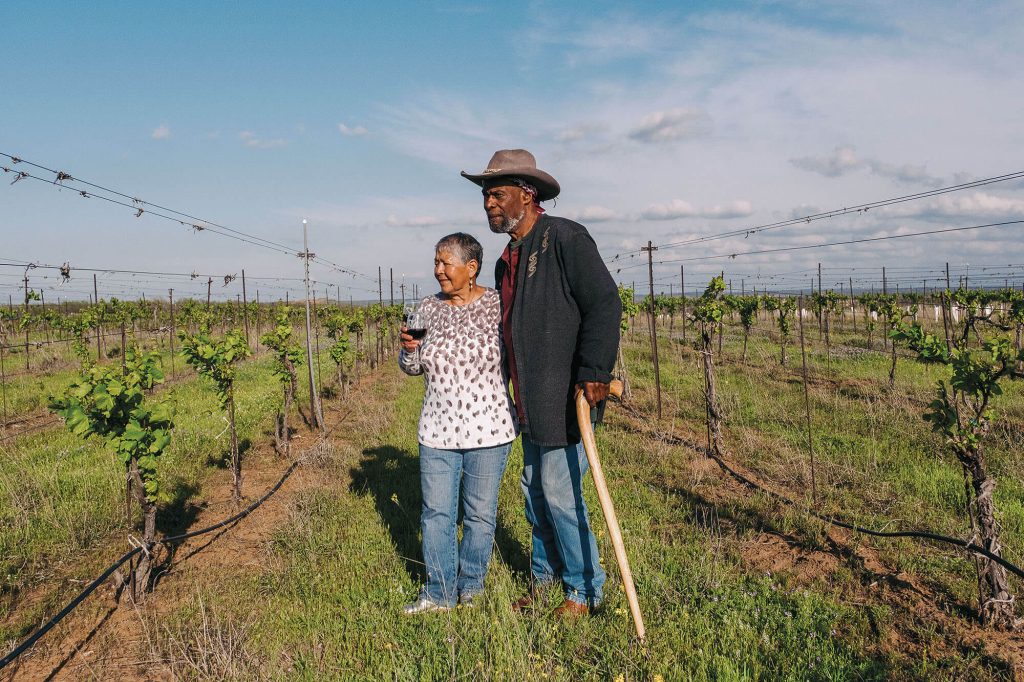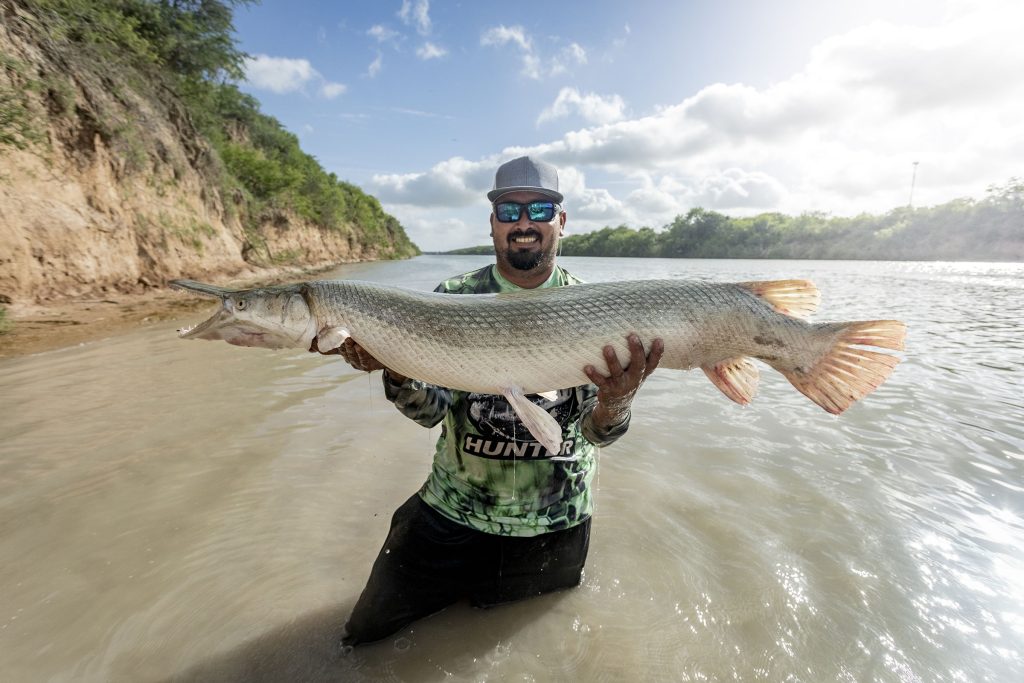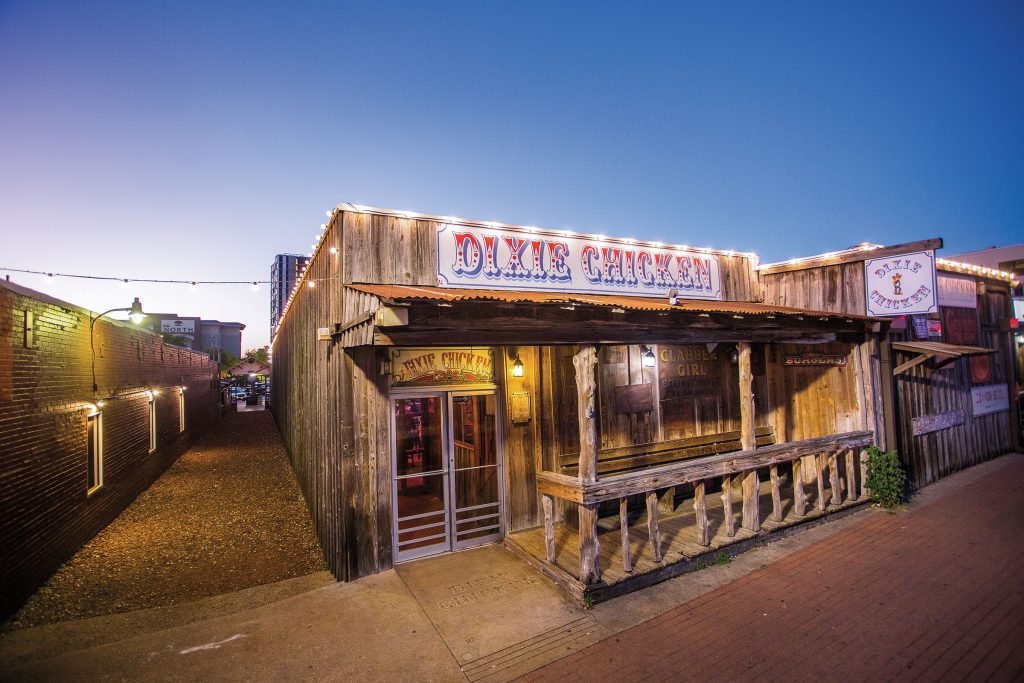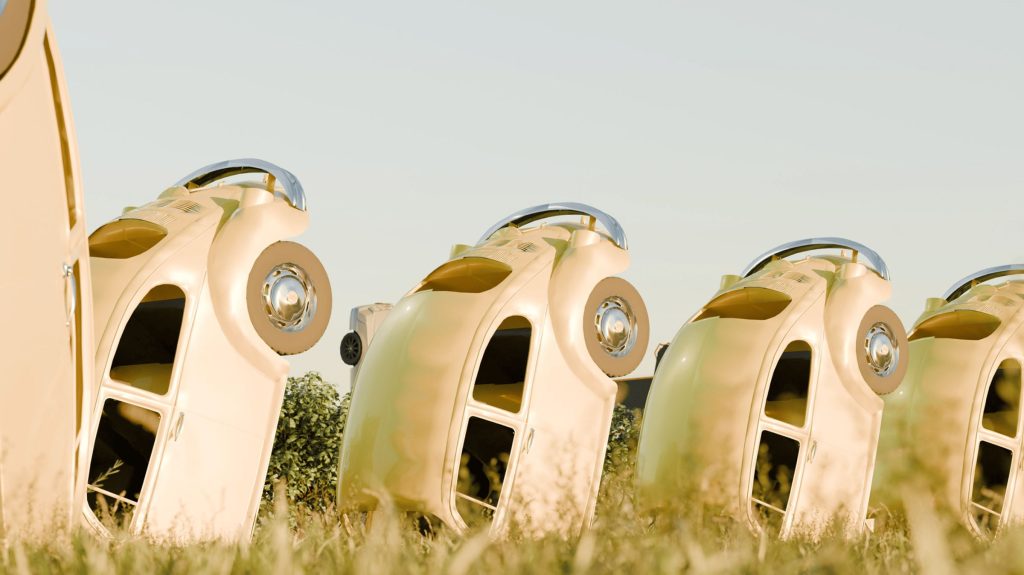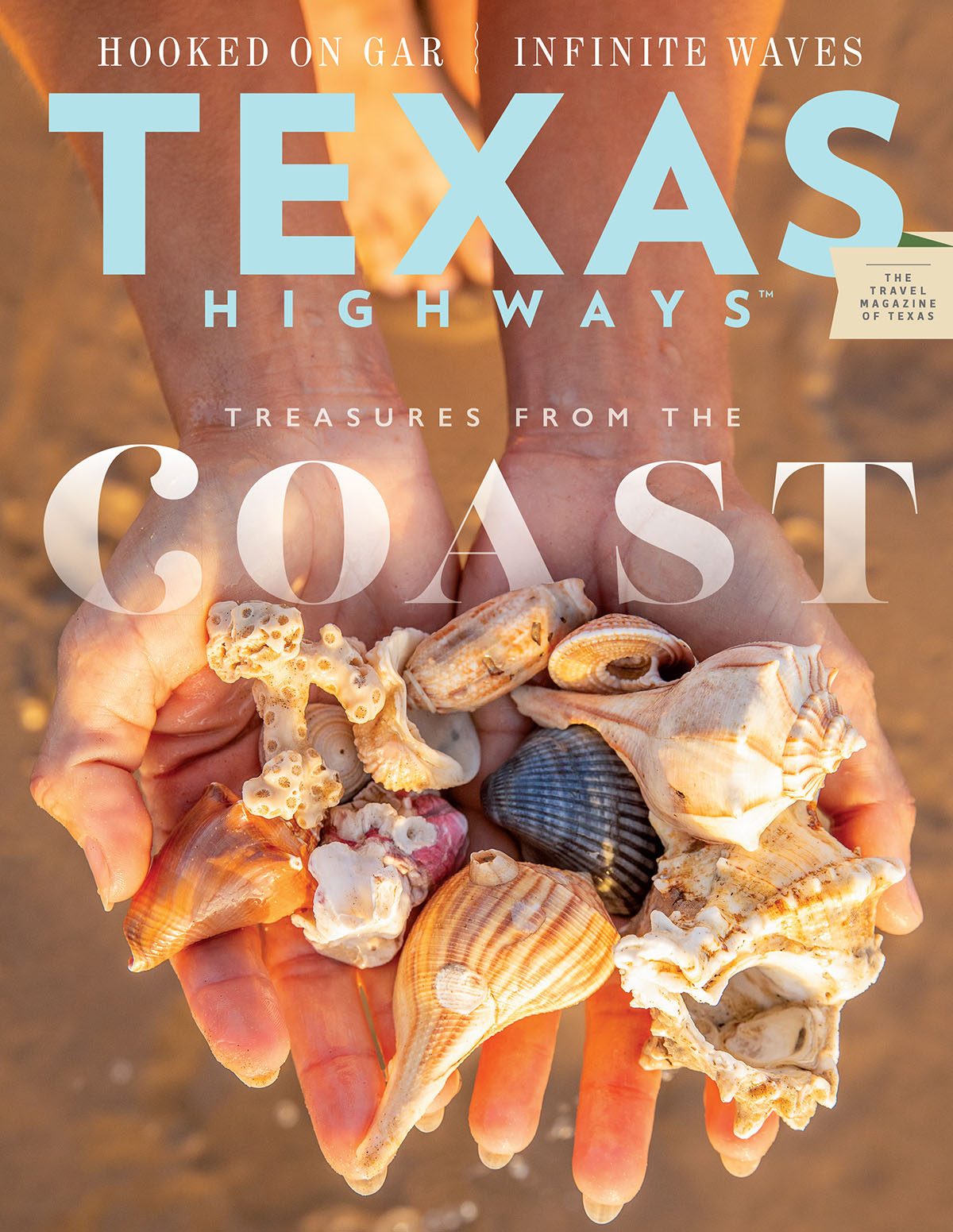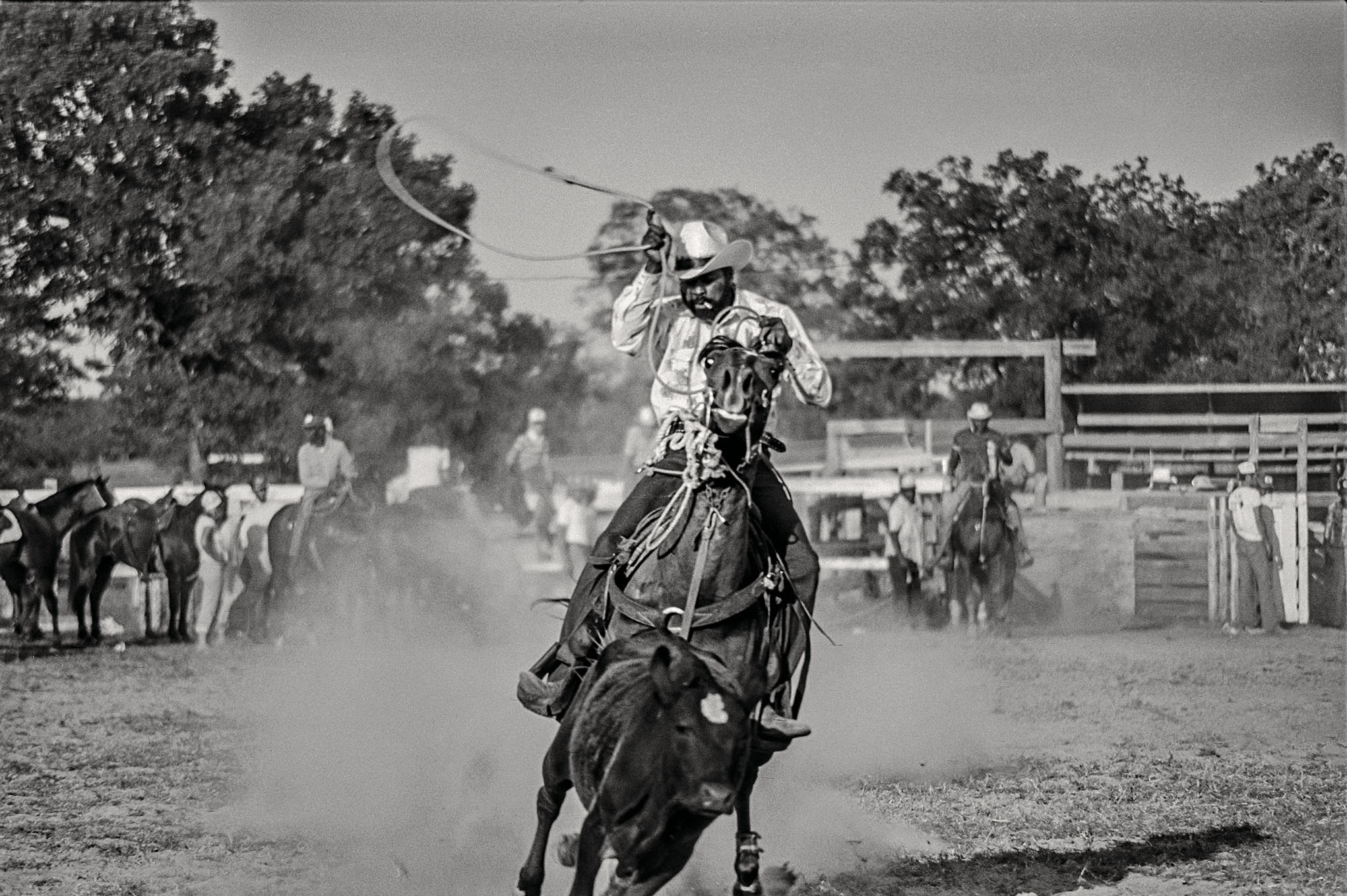
A cowboy thunders after a calf at a roping event held at the Pin Oak Community Arena in summer 1979. Photo courtesy Sarah Bird
The love for Black rodeo was passed down through Krishaun Adair’s bloodline. As a child, Adair participated in the Houston Livestock Show & Rodeo Parade, riding her horse through Houston alongside her grandfather, L.J. Jackson, a member of the Prairie View Trail Riders, and many other Black cowboys and cowgirls. She relished riding next to her grandfather and participating in the event into her teenage years.
“There’s documentation of me being on a horse earlier than I could remember myself,” Adair says. “I remember horses, and I remember wanting to compete and watching my parents compete.”
Her passion for rodeo grew beyond the annual event. The native Houstonian competed in barrel racing as a child and still travels across the country to competitions. The rodeo tradition has since carried into her own family. Her husband is a calf roper like her dad, and her 9-year-old daughter also competes.
“These functions raised me,” Adair says. “These people loved me. I’ve always just had a spot in my heart for little girls, especially little chocolate ones, who ride horses.”
In the early to mid-1900s, national names like Texan bull rider Willie Thomas put Black cowboys on the map. Myrtis Dightman Sr. also became a household name as the first Black cowboy to compete in the National Rodeo finals in the 1960s. Now, Black rodeo culture is more present than ever. The Bill Pickett Invitational Rodeo, which celebrates its 40th anniversary this year, hosts competitions all over the country, spotlighting Black cowboys and cowgirls and providing a pathway for them to compete at the national level. The Houston Livestock Show & Rodeo, the largest rodeo in the world, has hosted Black Heritage Day for 31 years.
Adair grew her passion for barrel racing at Prairie View A&M University, competing on their college rodeo team. She now rides alongside her husband and daughter, including at the touring Bill Pickett Rodeo founded in the 1980s by Californian rodeo enthusiast Lu Vason.
Vason started the rodeo after a trip to Cheyenne Frontier Days in Wyoming, where he noticed a lack of African American competitors and spectators. He learned about famous Black cowboy Bill Pickett, who was born in Travis County in 1870 and became known for “bulldogging,” a technique to calm a stubborn steer. Pickett would grab the steer by its horns, twist its head up, and then bite its tender nose or lip. Vason held his first Bill Pickett Rodeo in 1984 in Denver, and the events have since expanded to Texas and throughout the rest of the U.S. Adair qualified for the World Women’s Rodeo championship in Fort Worth through the event.
“Until I traveled with Bill Pickett, I never realized how we’re not there, and how we’re not represented,” Adair says. “They have created opportunities for us to be on the same playing field that I used to only dream of.”
During slavery, many Black people learned the skills of a cowboy while laboring on ranches across the state. But slave owners used the word “cowboy” in a derogatory way toward Black people working on their land. The term “cowhand” was reserved for white people, according to Larry Callies, owner of the Black Cowboy Museum in Rosenberg.
After the Civil War, some Black people became horsebreakers and others became Old West gunfighters and outlaws, according to the Texas State Historical Association’s Portal to Texas History. Many in the Black community also participated in the cattle drives that began in the Southwest in the late 1800s. Some owned their own ranches and farms, like Callies’ grandfather.
Growing up in El Campo, Callies always wanted to be a cowboy. He competed in local rodeos, becoming the second Black person to make the National High School Rodeo Finals in 1971. Instead of pursuing rodeo, he went on to become a popular country western singer, once performing for President George H.W. Bush. After losing his voice in the 1990s, Callies found a new dream while working at George Ranch Historical Park in Richmond. He’d always held on to mementos from his grandfather and father, but his collection of Black cowboy memorabilia grew during his work at the park.
“I’m a Christian first. I’m a cowboy second,” Callies says. “I know when God closes one door, he opens a bigger one. He’s opened this museum wide open for me.”
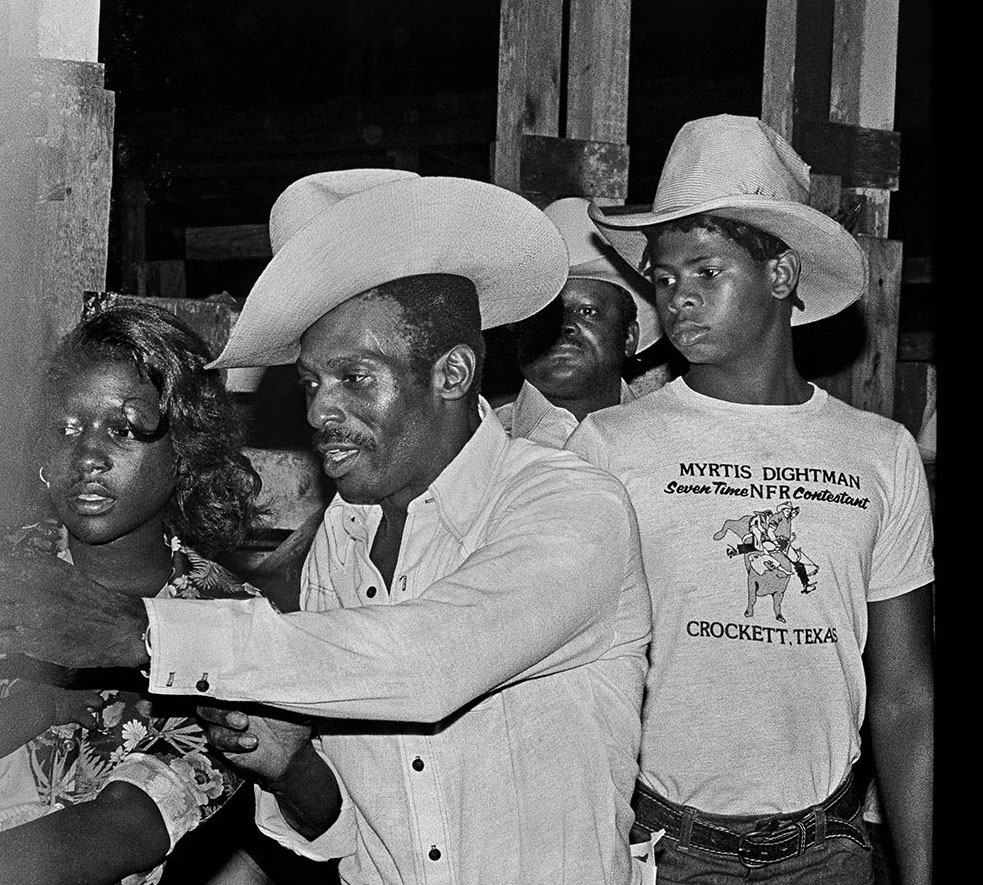
Myrtis Dightman Sr., center, was the first Black cowboy in the Professional Rodeo Cowboys Association. Photo courtesy Sarah Bird
The Black Cowboy Museum, which opened in 2017, attracts visitors from all over the world to learn about the individuals who changed the landscape. One such cowboy was Harold Cash, who in 2010 was inducted into the Fort Worth Multicultural Western Heritage Museum’s Hall of Fame. Cash spent most of his childhood summers at his grandfather’s ranch in Kendleton. That’s where he first saw Black cowboys compete in a rodeo and where he competed in his first rodeo—which didn’t go as planned, as the horse threw him off. He tried again a few months later at a rodeo in McBeth, where he won third place and $23.
Summer Rodeos
Bill Pickett Rodeo Invitational, June 15
Cowtown Coliseum,
121 E. Exchange Ave., Fort Worth.
billpickettrodeo.com
Myrtis Dightman Youth Rodeo, Aug. 30-31
Porth Ag Arena,
1100 Edmiston Drive, Crockett.
Longview Juneteenth Black Rodeo, June 29
Longview Fairgrounds,
1123 Jaycee Drive, Longview.
therealcowboy
association.com
READ MORE
The photographs for this story come from Austin author Sarah Bird’s new photography and essay book Juneteenth Rodeo. The book is on sale June 4 and features over 100 black-and-white photos.
“It looked like I had won a million. I have been rodeoing ever since,” Cash says.
Cash began to make a name for himself in the rodeo scene during the 1970s. He learned the ropes of the rodeo world through famous bull rider Willie Thomas Sr. Cash made friends with many other cowboys, no matter their race, but discrimination still lingered at competitions. Cash describes how professional timekeepers would make some Black competitors ride their bulls longer before automated timers set in.
“Instead of riding eight seconds, if you were Black, sometimes you would have to ride 15 or 20 seconds. Sometimes they wouldn’t blow the whistle,” Cash says. “Some of them look at you and grin and laugh and blow the whistle after you get throwed. It was just a way of life.”
Despite the setbacks, Cash became known as a skilled bareback rider and won numerous awards across the country.
Not all rodeo events are competitive. For 10 years, Myrtis Dightman Jr. has served as trail boss for the Prairie View Trail Riders. The yearly trail rides take place in February, as hundreds of Black cowboys and cowgirls ride toward the Houston Livestock Show & Rodeo atop horses and pulling covered wagons. The rides last an entire week, with campsites and activities along the route including parades and an annual chili cookoff.
“My vision is to continue the legacy of Black cowboys and continue having the name Prairie View. Just carrying that name and being a part of history,” he says.
Dightman Jr. grew up on a farm in Crockett and watched his father become a rodeo star and acclaimed bull rider. His dad also created and led the Prairie View Trail Riders in 1957 with James Francies Jr. to build a platform for Black cowboys. Dightman Jr. continues the tradition, leading about 300 cowboys and cowgirls on the ride every year. He also holds the Myrtis Dightman Youth Rodeo every Labor Day weekend.
A Prairie View Trail Ride alum, Adair also plans to keep passing the rodeo traditions instilled in her family. Shortly after the pandemic, she started a rodeo association, Star Rodeo. Three years later, it has more than 150 members.
“It’s for your family,” Adair says. “Everybody’s welcome.”
